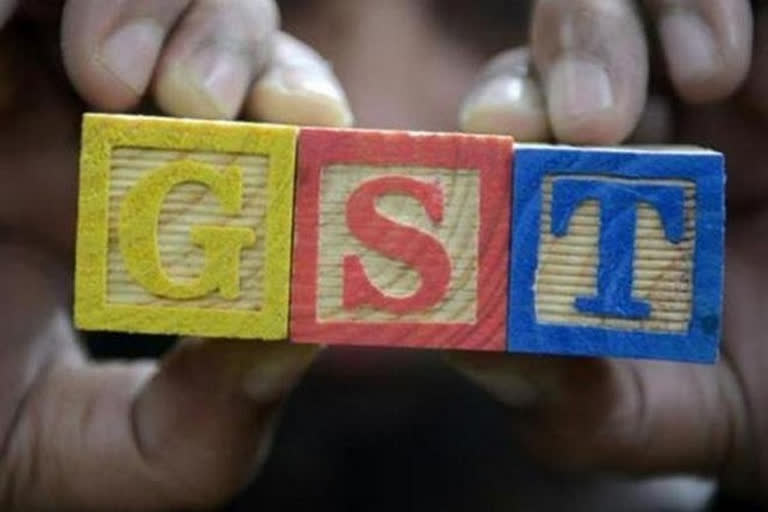New Delhi: A domestic company buying goods from abroad and selling to another country will have to pay GST on such transactions even if the said products are not entering the Indian territory, the Authority for advance ruling (AAR) has said.
On an application filed by Sterlite Technologies, the Gujarat-bench of AAR has ruled that GST is payable on goods sold to customer located outside India, where goods are shipped directly from the vendor's premises (located outside India) to the customer's premises.
The applicant had sought to know whether the goods and services tax (GST) would be levied on merchant trade transactions (MTT).
"It appears that the transaction is covered under the ambit of inter-state supply and is neither exempted nor covered under export of services. Thus, the theory of elimination takes us to the conclusion that such supplies will be subject to levy of IGST (integrated GST)," the AAR has ruled.
The AAR verdict means that GST would be levied on MTT where applicant will receive an order from the customer located outside India and as per their instruction, the vendor would directly ship the goods to customer located outside India.
Vendor would issue invoice on applicant against which payment would be made in foreign currency and applicant would raise invoice on customer and would receive consideration in foreign currency.
In the above transaction, goods would not physically come into India, but would move from place outside India to another place outside India.
Read more:Skill sets of returnee migrant workers mapped for Garib Kalyan Rojgar Abhiyaan: Nirmala Sitharaman
AMRG & Associates Senior Partner Rajat Mohan said that globally, MTT is not exigible to any taxation in intermediate host countries and so was the case in India under the erstwhile regime. GST law also provides that MTT is outside the scope of GST.
"Ruling by Gujarat AAR needs to revalidated in light of provisions under schedule III of the CGST act, otherwise, it could be a fetter for the entire industry," Mohan added.
Schedule-III states that transactions where "supply of goods from a place in the non-taxable territory to another place in the non-taxable territory without such goods entering into India" shall be treated neither as supply of goods or services and hence not liable to GST.
Tanushree Roy, director (GST), Nangia & Co LLP, said that as GST is still evolving, it cannot be concluded with certainty from the provisions of the GST legislation whether the supply of goods takes place from the place/ state from where the tax invoice is raised or from where the movement of goods start.
"This judgment has provided clarity on this aspect by stating that in the event that the supplier is located in India and the place of supply is outside India, such supplies would be treated as inter-state supplies and liable to GST in India.
"Suppliers of goods should keep this aspect in mind while entering into 'Merchant Trade Transactions'/ back to back contracts," Roy said.
Interest on PPF, savings bank deposit to be included for calculating GST registration threshold: AAR
The value of exempted income, like interest on PPF, savings bank account and loans given to family/friends, will be included along with taxable supplies while calculating the threshold limit for obtaining GST registration, the Authority for Advance Ruling (AAR) has said.
Under the Goods and Services Tax law, businesses and individuals are required to obtain GST registration if their aggregate turnover is Rs 20 lakh or more.
An individual, not engaged in any business, had filed an application before the Gujarat bench of AAR asking whether interest received from savings bank, PPF and loans and advances to family would be considered for the purpose of calculating threshold limit of Rs 20 lakh for registration under GST law.
The individual, in his application, had disclosed that his total receipts in 2018-19 fiscal were about Rs 20.12 lakh, including rent receipt of Rs 9.84 lakh, while the remaining was interest on bank, PPF deposits and from personal loans extended to friends/family.
The AAR, while ruling that interest income would be included for calculating registration threshold, said that the applicant is required to consider the value of both taxable supply i.e. "renting of immovable property" and exempted supply of service provided by way of extending deposits, loans or advances for which he earned interest income, to arrive at "aggregate turnover" to determine the threshold limit for the purpose of obtaining registration under the GST Act.
"We conclude that the Applicant is required to aggregate the value of exempted interest income earned by way of extending deposits in PPF & Bank Saving accounts and loans and advances given to his family/friends along with the value of the taxable supply i.e. Renting of immovable property for the purpose of calculating the threshold limit of Rs.20 Lakh for obtaining registration under GST law," the AAR said.
(PTI Report)



